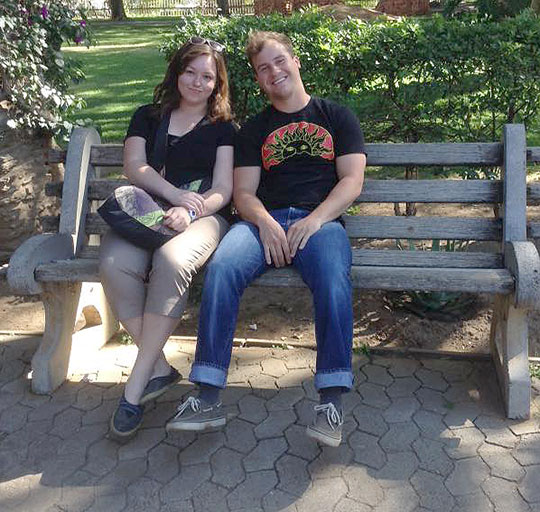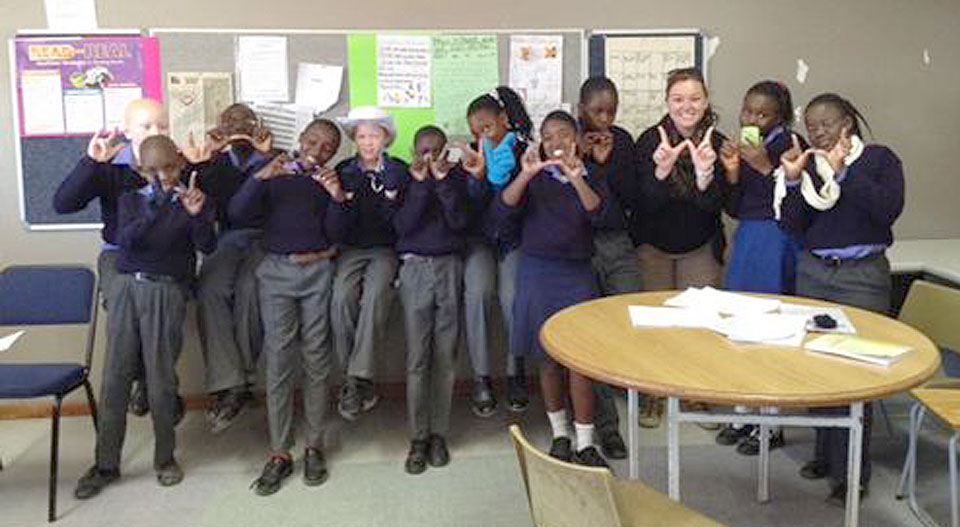

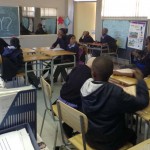 Before I came to Namibia I mainly informed people I would be teaching at a school, but we have become much more than teachers in our first two weeks! We have become parents, role models, friends, teachers, guidance counselors, colleagues and much more. Each day we drive up in a large white van and we nearly feel like celebrities as the kids wait by the handles of the doors for us to open the doors. Instantly we are surrounded by smiling faces, well wishes and hugs. Many of the students ask to take pictures on our phones or cameras so sometimes the students even become the paparazzi.
Before I came to Namibia I mainly informed people I would be teaching at a school, but we have become much more than teachers in our first two weeks! We have become parents, role models, friends, teachers, guidance counselors, colleagues and much more. Each day we drive up in a large white van and we nearly feel like celebrities as the kids wait by the handles of the doors for us to open the doors. Instantly we are surrounded by smiling faces, well wishes and hugs. Many of the students ask to take pictures on our phones or cameras so sometimes the students even become the paparazzi.
In such a short amount of time it truly amazes me how connected our team has become, and the bonds we have created with the students! At this point I 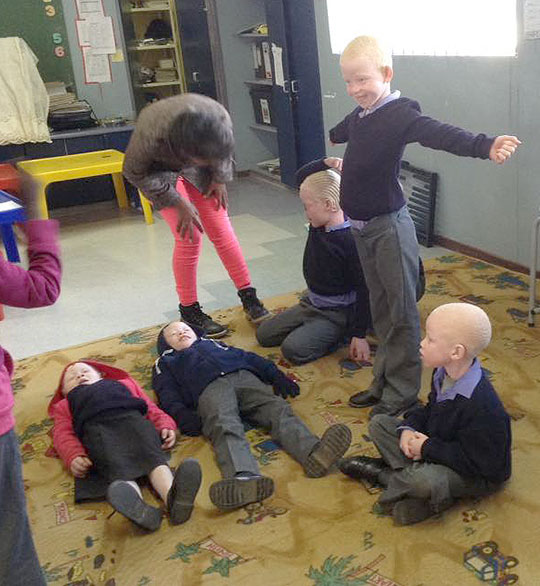 have a routine of students I expect to greet each morning and talking with them gives me such joy and I could not ask for a better way to start each day. Sometimes teachers at the school indicate they will be absent the next day, giving us time to prepare for lessons and allows us to assign team members to that classroom. Other days, some of us walk around to make sure no students are waiting outside or other teachers are absent. If a teacher is unexpectedly gone, we create lessons on the spot and teach on our toes! Some of the best lessons are those that are unexpected, and I enjoy watching students develop in such a short amount of time.
have a routine of students I expect to greet each morning and talking with them gives me such joy and I could not ask for a better way to start each day. Sometimes teachers at the school indicate they will be absent the next day, giving us time to prepare for lessons and allows us to assign team members to that classroom. Other days, some of us walk around to make sure no students are waiting outside or other teachers are absent. If a teacher is unexpectedly gone, we create lessons on the spot and teach on our toes! Some of the best lessons are those that are unexpected, and I enjoy watching students develop in such a short amount of time.
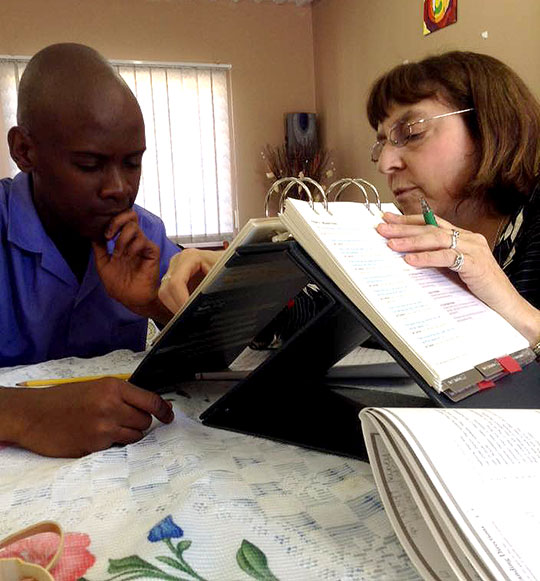 Adam and I are coaches on this trip, which means we also help teach where there is a need but also assess learners who have been recommended for promotion, or to advance to a higher grade. During the first day of school Adam, Prof. Caro and I met with the principal Mrs. Marillize Fransman and discussed students and grade levels to observe and learners to test for possible grade advancements. At this school, learners in one grade are not all the same age, as students advance to the next grade when the team believe they are ready to do so.
Adam and I are coaches on this trip, which means we also help teach where there is a need but also assess learners who have been recommended for promotion, or to advance to a higher grade. During the first day of school Adam, Prof. Caro and I met with the principal Mrs. Marillize Fransman and discussed students and grade levels to observe and learners to test for possible grade advancements. At this school, learners in one grade are not all the same age, as students advance to the next grade when the team believe they are ready to do so.
The test we use is the Woodcock Johnson III, which we have practiced proctoring in special education courses at the University of Wisconsin-Stevens Point. From these scores we take into consideration the fact that the test is normed for students in the United States and the test was written for people that have English as a first language. Due to these factors, we have learned to quickly improvise! From grabbing Namibian currency from our 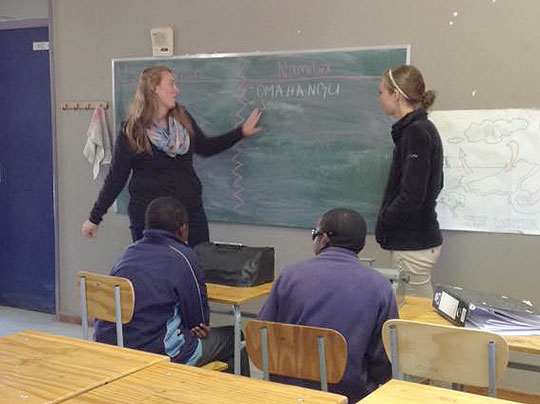 bags to reading the test aloud to students that are completely blind, we have been able to write reports consisting of recommendations and even promoted a few students so far. In the states I had a difficult time sitting in on Individualized Education Program (IEP) meetings while teaching at the schools up to this point and am fortunate to gain such wonderful experience administering a test I will be giving in the future and writing reports based on the results.
bags to reading the test aloud to students that are completely blind, we have been able to write reports consisting of recommendations and even promoted a few students so far. In the states I had a difficult time sitting in on Individualized Education Program (IEP) meetings while teaching at the schools up to this point and am fortunate to gain such wonderful experience administering a test I will be giving in the future and writing reports based on the results.
From adapting to the time zone, teaching students that have English as a third language, writing lesson plans, reports, and thinking on the spot, I am so proud of the team and all that has been accomplished so far. Everywhere I look at the school I see new advancements each day I arrive at school and know we have already made an impact on the learning taking place and I am excited to see what learning will take place in the upcoming weeks!
Groete,
Katie
Katie Morici, an elementary education and special education major, is blogging about her study abroad experience in Namibia, Africa.

